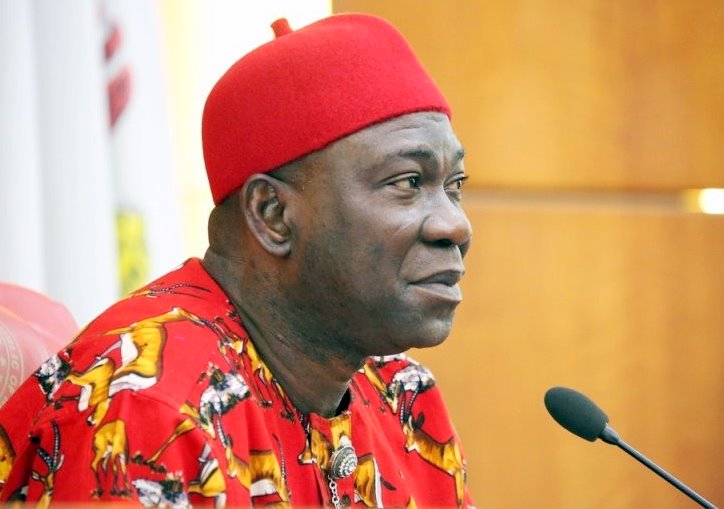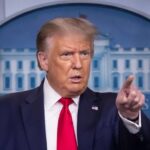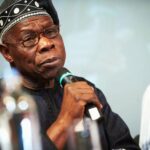A few years ago, during a fellowship in the United States, a colleague from an eastern European country found himself on the other side of American law, and another colleague, a professor from a francophone African country, blurted out a familiar Latin expression, which I had memorised since the incident—ignorantia legis neminem excusat. Perhaps it’s the way she said it, with that disarming French accent, half-disappointed and half-sympathetic.
The circumstances of her speech were not an invitation for bantering, for which she was well-known, so she dispelled the offender’s explanation that he was unaware it was unlawful to transgress in the fashion he did in the United States. He watched her explain the Latin jargon, which I’ve come to realise is a habit among lawyers in their Latin-crazed showmanship, instead of simply saying “ignorance of law excuses no one.”
Last week, I was speechless when I saw the latest in the trial of Nigeria’s former Deputy Senate President, Dr. Ike Ekweremadu, along with his wife, on the long-running court case over allegations of organ trafficking in the UK. Breaking the news, the BBC shared their mugshots, and that “A senior wealthy Nigerian politician, his wife and a medical ‘middleman’ have been found guilty of an organ-trafficking plot, after they brought a 21-year-old man to the UK from Lagos.”
When the trial began, I shared in this space that “As a powerful politician in a functional country, (Ekweremadu) is capable of sponsoring this turbulent journey to prove his innocence in the British court. He would also enjoy first-class services from the Nigerian government through established diplomatic channels in ensuring that he’s not misrepresented or disadvantaged in a foreign country.”
- Railway loan: Reps approve China Development Bank as new financier
- NNPC to raise crude reserve to 50bn barrels, explores Nasarawa oilfield
But what’s made Ekweremadu’s case peculiar is, unlike my colleague in the US, he had no privilege to quote that Latin expression. He holds a Ph.D. in law, and even my French-speaking professor friend wouldn’t have been qualified to tell an intellectual and lawmaker of his standing about the ignorance of foreign laws. His case had to be a regrettable hangover from the liquor of power at his disposal in Nigeria, where he could get away with even murder on the basis of his position on our pyramid of influence.
Those mugshots aren’t only a tragedy he could’ve escaped in his home country, but, in retrospect, they are an amplification of the aristocratic excesses we had condoned. The cost, for him, is more than the shame he’s enduring in a foreign dock. He’s sacrificed an extraordinary political rise, from a local government chairman in 1997 to a component of Nigeria’s presidential line of succession in 2007 as a ranking principal officer of the Nigerian Senate.
The strangest dimension of Ekweremadu’s story is, the man in the dock in London was, ahead of Nigeria’s 2019 elections, just two decisions away from being Nigeria’s second-in-command—if former Vice President Atiku Abubakar had accepted him as running mate as preferred by the Peoples Democratic Party’s establishment in the South-East and if, again, the closely-contested election had gone Atiku’s way. Any slight variation in those decisions, which didn’t decimate his political essence, could’ve had him calling the shots from Nigeria’s seat of power instead of a small court in London.
Even as the British tabloids feast on his story, painting it colorfully as another wild tale of a powerful African kleptocrat who smuggled a minor to Europe to harvest his organs, it’s difficult to resist sympathising with the Ekweremadus. The dilemma, though, is still the power differential between them and the supposed organ donor, whom they had told the court wasn’t a minor as he claimed.
It was easy to establish from the start of the trial that even if the Ekweremadus’ lawyers were able to argue their way out of the child trafficking charge on the basis of the age of the alleged victim, the UK’s Modern Slavery Act (2015) was predicted to be their worse nemesis. Proving that the consent of the very young man that reported them to the police wasn’t transactional was an unlikely miracle from the word go, and there goes their path to a foreign jail.
Under Section 2 of the Act, “(1) A person commits an offence if the person arranges or facilitates the travel of another person (‘V”) with a view to V being exploited,” and the Act further defines such exploitation in S. 3 (4) as when “The person is encouraged, required or expected to do anything (a) which involves the commission, by him or her or another person, of an offence under Section 32 or 33 of the Human Tissue Act 2004 (prohibition of commercial dealings in organs and restrictions on use of live donors) as it has effect in England and Wales.”
As a figurehead of a geopolitical zone at the centre of a well-oiled campaign to take power in Abuja, Dr. Ekweremadu’s role was missing in the election season that defined a country that needed him. Although he was never a favourite of the supercharged Obidient movement that breathed life into third-force politics in 2023 nor was he liked by the neo-Biafra separatist group, the Indigenous Peoples of Biafra (IPOB), in the East, and he was quick to single them out as perpetrators after he was physically assaulted at an event in Nuremberg, Germany, in 2019, his absence was loud nonetheless.
With his party defeated for a second third time since losing power in 2015, and a British court committed to making him pay for a crime of which he thinks he’s innocent, Dr. Ekweremadu’s rise in a turbulent political environment to his fall in a society more orderly and calmer reminds us of our ancestors’ saying that “It is the calm and silent water that drowns a man.”

 Join Daily Trust WhatsApp Community For Quick Access To News and Happenings Around You.
Join Daily Trust WhatsApp Community For Quick Access To News and Happenings Around You.


